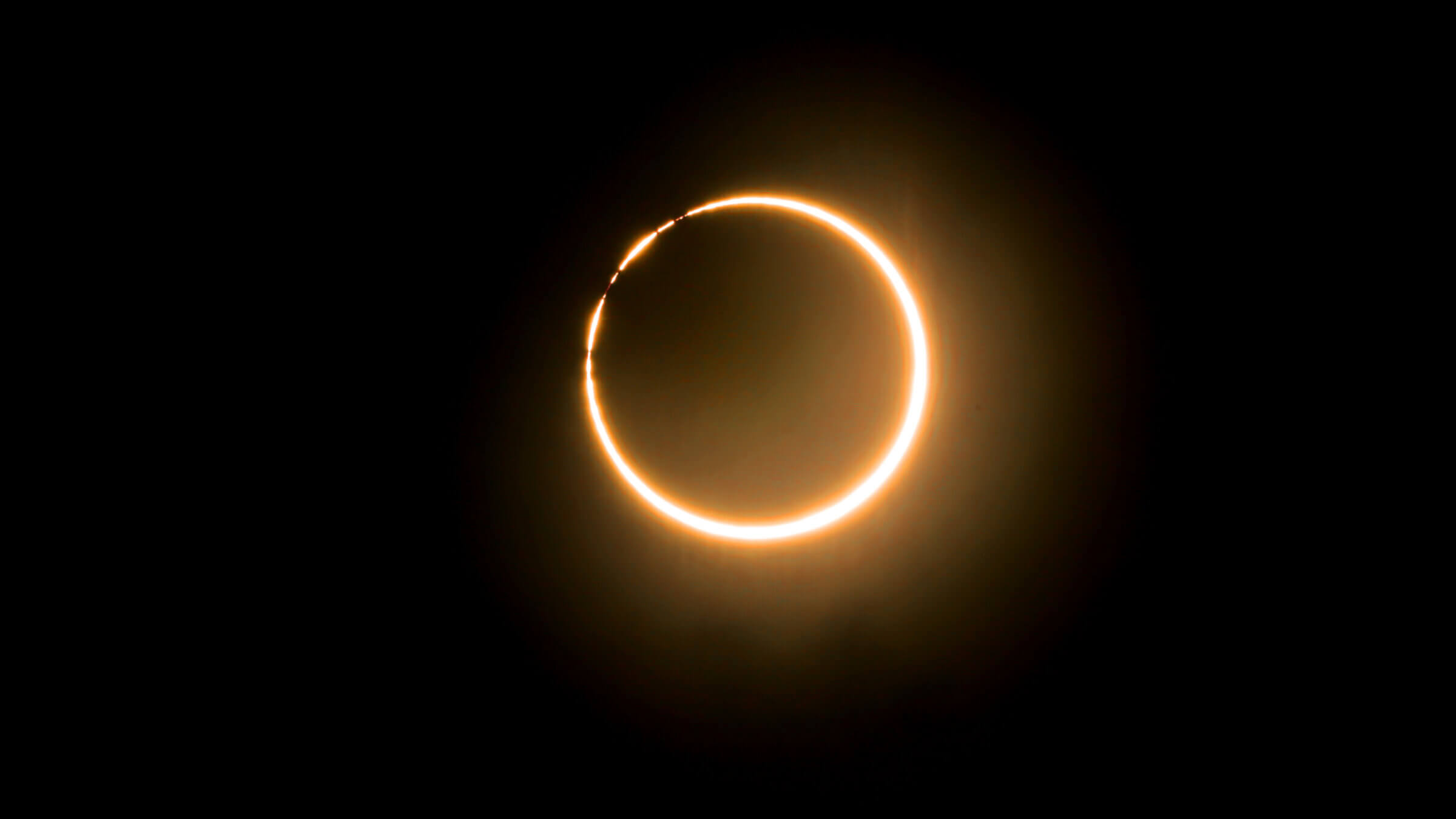On April 8, God will turn the sun into darkness and the moon into blood
Solar eclipses are rare and scientifically interesting, but Jewish texts say they’re punishment for sins

In an annular solar eclipse, the sun’s light is not entirely blocked by the moon, and a “ring of fire” is visible. But this eclipse will be total. Courtesy of Getty Images
Calamity is coming. God is turning away from us as punishment for our misdeeds. At least, this is the gist of what the Bible and the Talmud seem to be telling us about the full solar eclipse due to appear over parts of the U.S. on April 8.
“The hour of doom has come for My people Israel; I will not pardon them again,” God says in the Book of Amos, one of several biblical passages relating the horrors of a solar eclipse. “I will make the sun set at noon, I will darken the earth on a sunny day.”
“Before the great and terrible day of the Lord comes, I will set portents in the sky and on earth: blood and fire and pillars of smoke,” says a passage in the Book of Joel. “The sun shall turn into darkness, and the moon into blood.”
It’s not surprising that solar eclipses were considered bad omens by the ancient Israelites and the sages of the Talmud — the daytime darkness that solar eclipses bring feels intuitively ominous or, at the very least, gloomy. During them, animals behave strangely. Plants may react as well. The temperature can drop up to 10 degrees Fahrenheit.
But, as ever, the sages of the Talmud attempted to interpret that sinister feeling so that we would know which horrors, exactly, we’re due for.
In the Talmud tractate Sukkah, for example, the rabbis say that an eclipse where the sun appears red means war is coming, while a black shadow predicts famine.
Thankfully, not all of the meanings are quite so threatening. Later in the same tractate, the sages say that solar eclipses are sometimes the Heavens’ eulogy for someone who was not mourned properly, which is rather poetic. Other times, they’re a punishment for people chopping down fruit-bearing trees, or forging false documents or not coming to the aid of a woman being raped.
Regardless, though, solar eclipses seem to always be some sort of marker of bad behavior. The Maharal, a renowned Talmudic scholar from Prague, wrote that if humanity did not sin, we would live in eternal light.
That’s why, while most natural phenomena have blessings in Judaism — there’s a specific bracha for rainbows, as well as thunder, lightning and earthquakes — eclipses don’t merit a prayer.
Luckily, the full eclipse won’t pass over the entire U.S.; it will cut a diagonal path from the Mexico to New England, and other areas of the country will only see a crescent-shaped partial solar eclipse. So check the NASA map to see what kind of doomsday prepping and repentance you’re due for. And as long as you can make it through the four minutes of the eclipse, you can relax; the next full eclipse isn’t due for 20 years.























